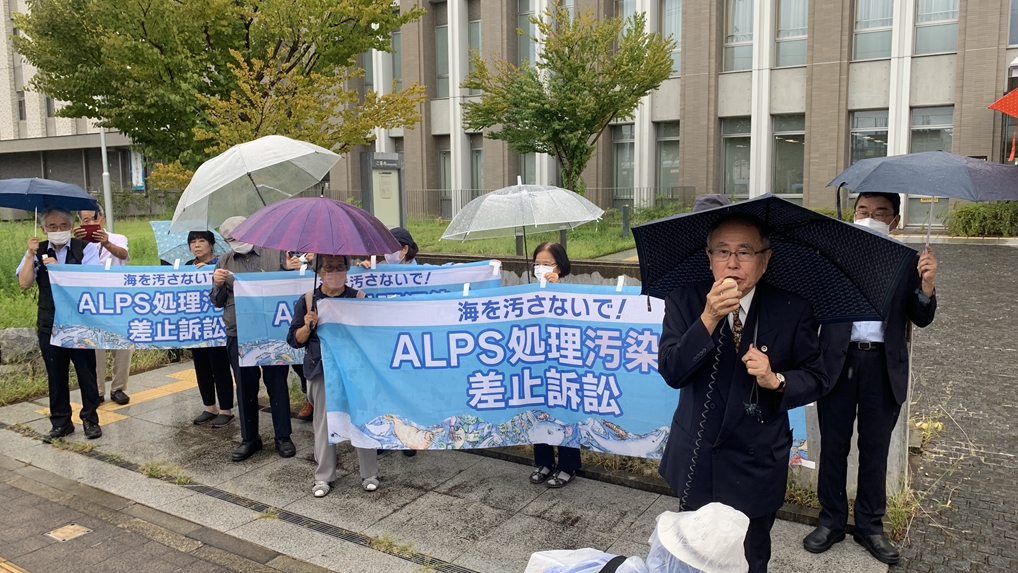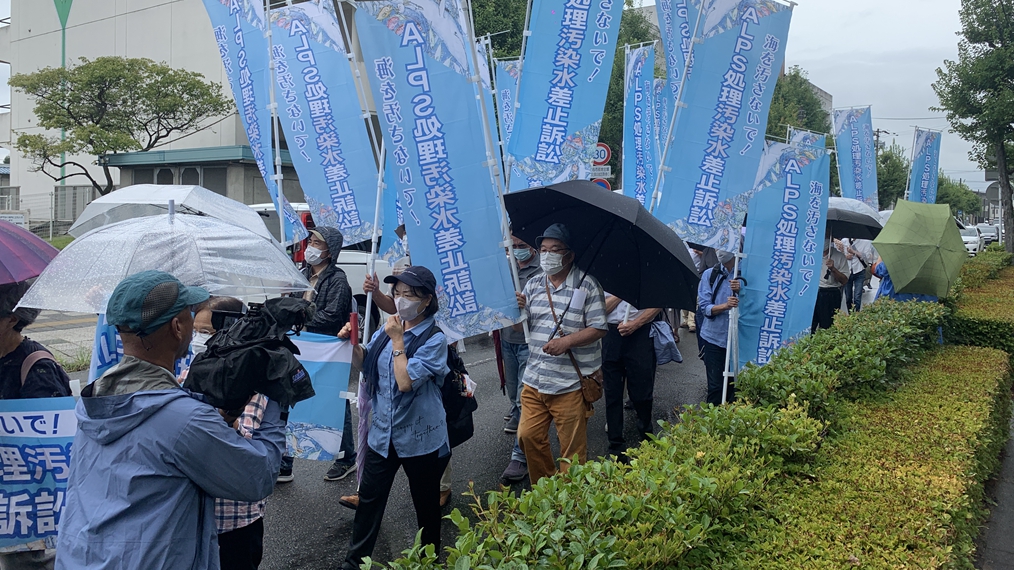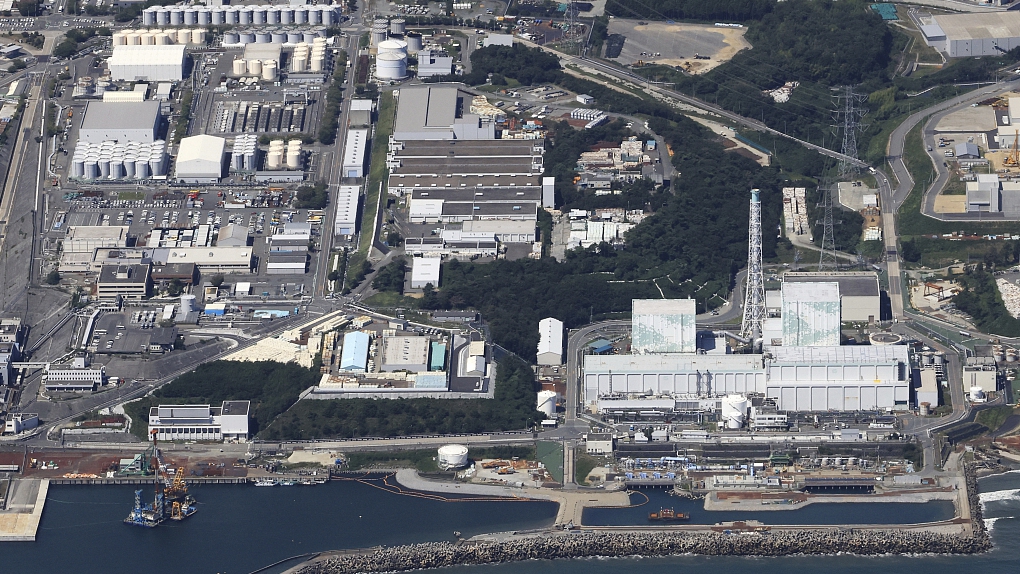
A group of plaintiffs in front of court in Fukushima to file a lawsuit against the release of nuclear-contaminated water, September 8, 2023. /CGTN
A group of plaintiffs in front of court in Fukushima to file a lawsuit against the release of nuclear-contaminated water, September 8, 2023. /CGTN
A group of 150 people in Japan, including fishery workers in Fukushima Prefecture, filed a lawsuit on Friday to halt the release of nuclear-contaminated wastewater from the crippled Fukushima Daiichi Nuclear Power Plant into the sea.
In a suit lodged against the Japanese government and plant operator Tokyo Electric Power Company (TEPCO), the plaintiffs claimed that the ocean discharge violates their fishing rights and threatens the rights of consumers to live peacefully.
In addition, they are seeking the nullification of nuclear regulators' approval of facilities installed for the water discharge and a ban to be placed on the release.

A group of plaintiffs head to court in Fukushima to file a lawsuit against the release of nuclear-contaminated water, September 8, 2023. /CGTN
A group of plaintiffs head to court in Fukushima to file a lawsuit against the release of nuclear-contaminated water, September 8, 2023. /CGTN
The plaintiffs, also including people affected by the 2011 nuclear disaster at the northeastern Japan power plant, filed the suit with Fukushima District Court, making it the first lawsuit of its kind.
Despite opposition from home and abroad, Japan started releasing Fukushima radioactive wastewater into the Pacific Ocean on August 24, sparking concerns among many fishermen about their livelihoods.
According to TEPCO, approximately 7,800 tonnes of nuclear-contaminated water would be discharged over 17 days in the first round. In 2023, the expected discharge is around 31,200 tonnes.
Experts estimate that Japan holds about 1.3 million tonnes of nuclear-contaminated water, and the discharge process could last for about 30 years. Research simulations indicate that by November 2026, the nuclear-contaminated water may reach the North American coast, gradually spreading across the North Pacific Ocean. By February 2030, it could extend into the Indian Ocean, and after 10 years, it may have dispersed throughout nearly the entire Pacific Ocean.
Many Japanese people braved rain to gather in front of the headquarters of TEPCO on Wednesday night to express their strong opposition to the discharge of nuclear-contaminated water into the ocean.
Amidst the protesters, workers from the fishing industry voiced their disappointment and anger towards the Japanese government and plant's operator for betraying their commitments and discharging nuclear-contaminated water into the ocean.
"In August 2015, the government promised the fishermen that the nuclear-contaminated water would not be discharged into the sea without the permission of people concerned, but now they have initiated the water discharge recklessly," said a protester.
"The Japanese government and TEPCO said they will shoulder the responsibility, but they just pay lip service. Looking at what TEPCO has done so far, it has never taken any responsibility. What they have said is unconvincing," said another protester.

An aerial photo of the Fukushima Daiichi Nuclear Power Plant in Fukushima Prefecture, August 24, 2023. /CFP
An aerial photo of the Fukushima Daiichi Nuclear Power Plant in Fukushima Prefecture, August 24, 2023. /CFP
Many protesters condemned the decision to discharge nuclear-contaminated water into the ocean, asserting that it is unequivocally wrong, and urged the Japanese government to halt the process and explore safer solutions.
"I will never forgive this. As I have said that I feel deeply ashamed. The Japanese government has never considered the consequences. It is disappointing that our country has done such a thing. We should stop the discharge immediately and implement solidification with mortar as an alternative. There is enough storage space, so the contaminated water should be stored rather than discharged into the sea," said a protester.
A total of 88.1 percent of residents surveyed expressed concerns over the government's plan to discharge treated radioactive wastewater into the ocean, according to a recent opinion poll conducted by the national news agency Kyodo News.
An additional lawsuit at the end of October is being planned, according to Kyodo News.
(With input from Xinhua)